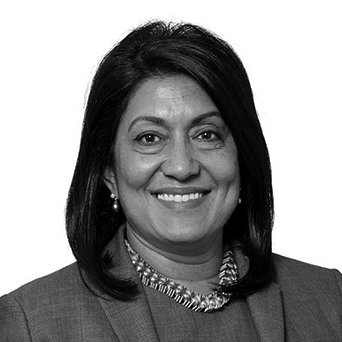Loading component...
At a glance
Janice Van Reyk CPA
Non-executive board director

What it takes to become a professional director is more about having “bet the company” experiences than specific technical skills. If you are mid-career and interested in becoming a professional director, a necessary step is to land a C-suite role reporting to a CEO. That will provide you with an invaluable track record of working across your executive peers to execute overall company strategy.
You need to ask your boss, “What do I need to demonstrate to get to the C-suite?”. Often, this requires demonstrating an ability to go beyond your subject matter expertise and show leadership in cross-company teams that are delivering strategic projects.
The second question to think about is, “What sort of boards will want my industry experience in 10 to 15 years’ time?”. Boards will always need qualified candidates for audit, finance and risk committees, but you’ll need something more for a compelling pitch to differentiate you from the competition for board roles. Usually, that X-factor is deep management experience in a particular industry. Right now, experience in implementation of digital transformation or decarbonisation is highly sought after on boards.
"If you are mid-career and interested in becoming a professional director, a necessary step is to land a C-suite role reporting to a CEO. That will provide you with an invaluable track record of working across your executive peers to execute overall company strategy"
The third question to consider is, “Who will be willing to help me get on a board?”. The people who will be your best sponsors are people who have worked with you and know the value you can bring. Maintain relationships with these people in a genuine and authentic way.
David Schwarz
CEO, Board Direction

It is no surprise that becoming a non-executive director is an aspiration for many. Even for mid-career accountants, it offers the opportunity to develop governance experience, demonstrate strategic skills and grow a professional network that can be leveraged to build your career. It also offers a terrific way to give back to industries or causes that you might be passionate about.
The good news is that your skills are both highly valuable and highly desirable for the boards of many organisations, and at least 50 per cent of Australian organisations recruit a new board member every year. However, just knowing there are opportunities available and recognising their value does not guarantee an appointment.
If you want to become a non-executive director, first be clear about the organisations’ boards you want to serve on and are likely to be appointed to. This will mean your aspirations are based in reality and will ensure a better return on investment for your efforts. Second, finish this statement: “The value I can add to a board is...”. By doing so, you will write better board applications and have more successful interviews.
"If you want to become a non-executive director, first be clear about the organisations’ boards you want to serve on and are likely to be appointed to. This will mean your aspirations are based in reality and will ensure a better return on investment for your efforts."
Finally, 65 per cent of all board appointments occur via a personal connection, so start telling people you are looking for a board role, but be ready to be specific about where you can add value and have a non-executive director CV ready to support your conversations.
Lay Chew Chng FCPA
Independent non-executive, AWWA

To identify the skills and experience required for board positions, it is important to first consider the role of a board. From my perspective, a board has the dual supervisory roles of conformance and performance – it sets an organisation’s approach to governance as well as its strategic direction.
There are a number of skills required to meet these objectives. The first skill is financial literacy, and I believe members of CPA Australia have an advantage in this area. This is followed by a good understanding of governance and risk management. Board members also require an ability to build strategies that achieve the objectives of an organisation. Finally, as board members are part of a team and work with many stakeholders from diverse backgrounds, soft skills are vital.
Being a member of a board comes with responsibility and accountability, so it can never be too early to start building up the necessary competencies. There are a number of ways to do this. For example, identify a non-profit organisation that you are interested in and seek to join a committee or task group to help build up your skills, experience and profile. This may eventually lead to an invitation to join the board.
"It can never be too early to start building up the necessary competencies. There are a number of ways to do this. For example, identify a nonprofit organisation that you are interested in and seek to join a committee or task group to help build up your skills, experience and profile."
I’d also recommend identifying a mentor to guide your development. Finally, it’s important to know that people are generally invited to be considered as candidates for board membership. Start expanding your network today, because a strong profile takes time to build.
Meet the experts
Janice van Reyk CPA
Janice van Reyk CPA is an experienced non-executive director, primarily in infrastructure businesses. She specialises in chairing audit, finance and risk committees, and safety and environment committees. Prior to becoming a professional director, she enjoyed a successful senior executive career in ASX 100 companies and as a consultant on urban infrastructure and environmental projects.
David Schwarz
David Schwarz is CEO of Board Direction, an Australian nonexecutive director advertising and board career development firm. He is the author of Board Appointments: The Definitive Guide to Gaining a Non-Executive Directorship. Through Board Direction, he has helped thousands of people gain board appointments.
Lay Chew Chng FCPA
Lay Chew Chng FCPA has more than 35 years of international experience through leadership positions at JP Morgan, DBS Bank and Singapore Exchange (SGX). He now serves on the board of IREIT Global as chair of the audit and risk committee. He is also a board member of AWWA, a social services agency that empowers disadvantaged people to lead independent and dignified lives, and is a member of the CPA Australia Singapore Divisional Council.

